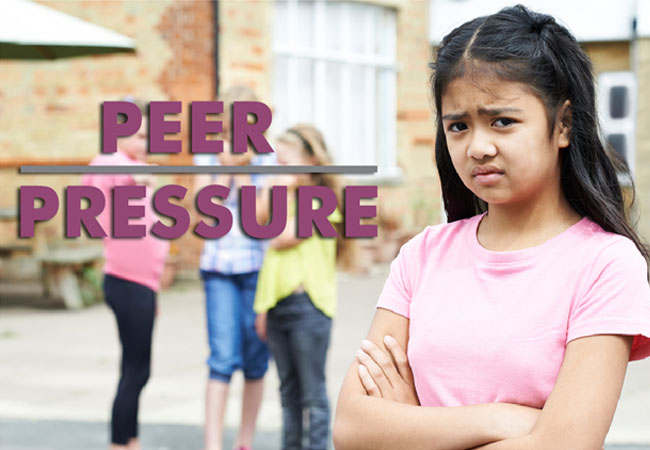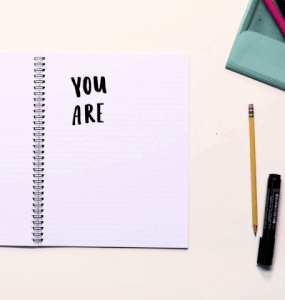Parenting | Jan 31, 2022
How to Deal With Peer Pressure?

We are all skipping science class today. Instead of taking a quiz, let's go for a walk and get some lunch instead!" says the coolest kid in class. Would you rather go to the science class regardless of the quiz? Or would you rather give in and go to their way of thinking?
In your senior years, you will have to make some tough decisions. Some questions do not have clear right or wrong answers, such as how to choose between playing soccer or field hockey? In addition, some decisions require making serious moral decisions, such as whether students should cut classes, smoke cigarettes, or lie to their parents.
If others try to pressure you in one way or another and try to get involved, decisions can be even more difficult. Your peers are others of your own age, similar to your classmates. Whenever someone tries to influence how you behave, to get you to act in a certain way, it is said that they are using peer pressure. Peer pressure affects any age group, including adults. We will discuss ways to cope with it.
Peer Pressure: What It Is and How it Works
By spending time with you, your peers impact your life, even if you are not aware of it. Through exchanging knowledge and experiences, you both learn from them. Humans have a natural tendency to listen to and learn from others in the same age group.
Positive influences can be exerted by peers on each other. Perhaps someone on the soccer team taught you how to catch a ball or you learned how to remember the planets of the solar system from another science student. An admirable friend might be the most talented at sport, so you try to emulate them. Probably you got everyone interested in reading your new favourite book because you got excited about it. Every day, peers positively influence each other through these interactions.
There are times when peers negatively influence one another. It is not uncommon for some kids at school to talk you into cutting class. You can also expect your soccer friend to attempt to influence you to be mean to another player by never passing the ball. Or, you can expect a neighbour to try to convince you to shoplift with him.
Students are frequently subjected to the following social pressures
With students moving up through the grades, peer pressure tends to intensify; by high school, students often find that fitting in has become a primary concern, and often a source of anxiety as well. Although peer pressure can appear in many forms, it is most commonly seen in a few areas:
- Substance abuse and alcoholism
Both college and high school campuses offer easy access to drugs and alcohol, and teens might be under pressure to be "cool" by trying something exotic and daring. According to a survey of teens about drug use, 55 percent reported they began using drugs as a result of peer pressure. A person who succumbs to peer pressure and consumes alcohol and drugs is bound to end up in over their heads, which will result in even more negative consequences. - Theft
There could be an immediate impact to theft, including strong feelings of remorse once the adrenaline rush wears off. When the rush of adrenaline wears off, there can be strong feelings of remorse after a theft has been committed. Because of stealing, people may experience guilt, fears about getting caught, and concerns about the potential damage to their reputation. - Taking part in sexual activities
If you see your friends hooking up, you may think that it is a common activity that you should not worry about. Those perceptions may lead someone to ignore their misgivings or hesitation and go further than they wanted with their sexual partner. Many of these pressures begin in high school or even earlier. Research has shown that 33 percent of teenage boys feel pressured to have sex, whereas 23 percent of teenage girls feel the same way. Although it can be hard to hold back when you are in the throes of passion, having sex under pressure can also make a person feel uneasy about crossing their boundaries, as it often means having sex without planning. It can have severe consequences, including sexually transmitted infections and pregnancy. Peer pressure leads to regrets in many areas, but one of the most important is in relationships. Many fewer young adults than you might think have hookup sex, though you might think everyone is doing it. - Harassment
It tends not to be seen as bullying in most people's minds. However, the "playground persecutor" is merely a form of bullying, and the behavior of bullying can be learned in small amounts. Students who recognize bullying when it is happening may be confounded when a group of friends begins to cheer each other on. They may be treated as an outcast if they stand aside and refuse to participate. If they choose to join in, they will have to deal with the negative feelings that come along with becoming a bully themselves. - Behavior that can be dangerous
Standing firm against crazy things that friends do, or walking away from them, can be difficult when hanging out with them. Furthermore, many people can justify some conduct as "not that bad," particularly if it does not seem all that risky from the outside. Trains can be easily heard coming along railroad tracks when you are walking along with them, is it not? I suppose car surfing is fine as long as people do not drive too fast? However, recent data shows that risky behaviors are a leading cause of death for young people every day. It is always a good idea to gauge your feelings while doing something- or afterward- to see if it is right for you. You should not repeat something that you regret having done, even if your friends ask you to.
Positive peer pressure is powerful and effective.
There are times when peer pressure can be beneficial. The application of positive peer pressure, for example, can influence bullies to behave better toward other kids. Peers can pressure each other into doing the right thing if enough of them gather!
















Post a Comment: